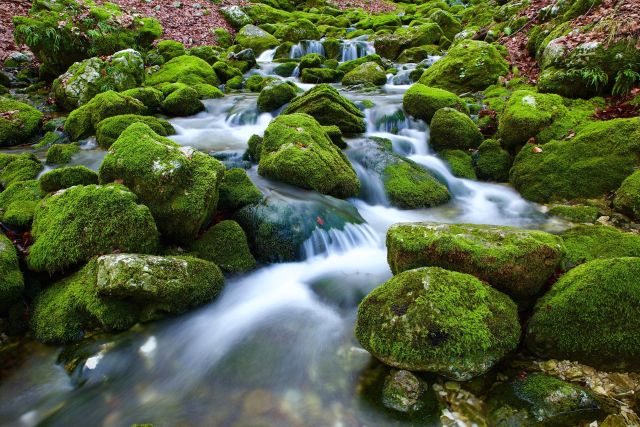
Can I Drink Spring Water?
When thinking of spring water, one usually imagines clear, fresh water that is drawn directly from the ground. But what exactly is spring water? Spring water is water that comes from a natural source and is not artificially produced. Most spring waters are formed by rain or snowmelt that filters into the ground or rocks and slowly becomes a spring. Since spring water is not artificially produced, it is often very pure and of good quality. It contains no chemical additives and is therefore suitable for drinking. However, in some cases, spring water may not be as pure as expected. This is mostly due to poor maintenance of the spring or the accumulation of germs or pollutants in the soil. Therefore, you should always check if the spring water is safe before drinking it. This can be done, for example, by testing a sample of the water or consulting the responsible authority.
Spring water is clear, cool, and refreshing. There are many different types of spring water, but they all have one thing in common: they are rich in minerals and nutrients. Whether naturally filtered or artificially produced, spring water contains important ingredients for the human body. In summary, drinking spring water provides us with many benefits.
What is spring water?
Spring water is water that is sourced from a natural spring, such as a lake, river, or stream. It is one of the purest and safest waters you can drink. In many countries, spring water producers must adhere to strict quality controls to ensure the water meets the highest standards.
How does a spring form?
A spring is a place where water is collected. Water flows into a spring because it is lower than the surrounding area. Most springs are underground, but there are also springs that form on the earth's surface.
Can you create your own spring?
Yes, you can create your own spring. However, this is not always the best idea as it can be easy to make mistakes. If you regularly use a large amount of water, it may be worthwhile to tap your own drinking water spring. Experts can help you find the optimal location for your spring and carry out the work professionally.
Is a house well worthwhile?
Yes, a house well can be worthwhile, especially if it is well planned and executed. A house well can enhance the atmosphere of a home and improve the well-being of its residents. It can also have technical advantages, such as helping to prevent groundwater in the house from drying out easily.
Where can I find drinking water from a spring?
If you are looking for a drinking water spring, you can orient yourself to your surroundings. Look around and search for signs of water – streams, rivers, or lakes nearby. Even if there is no running water, you can still try to collect rainwater or melt snow. Other options include wells or ponds – but be aware that these sources are often contaminated with germs and should therefore be filtered/disinfected before drinking. If you want to test your water quality, you can find suitable water analyses and quick water tests with us.
Conclusion
It is evident that drinking water from a spring is a very healthy choice for our daily use. By avoiding chemical additives and having a high content of natural minerals, it is an ideal drink for those of us looking for a healthier alternative to regular tap water. Before drinking from a new spring or well, we recommend testing the water quality. This way, you avoid unnecessary health risks. In our shop, you will find a variety of water tests.
✔ 20 common PFAS chemicals
✔ Per- and polyfluorinated alkyl substances
✔ Heavy metals and pollutants
✔ For general drinking water, softeners
✔ Most common pesticides
✔ Glyphosate separate analysis
✔ Focus on bacterial contamination
✔ For general drinking water, softeners
✔ Heavy metals and contaminants
✔ Separate bacteria test recommended
✔ Heavy metals and contaminants
✔ Separate bacteria test recommended
✔ Analysis for lead also included
✔ Separate bacteria test recommended
✔ 100 Test strips
✔ For general drinking water, water softeners








